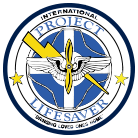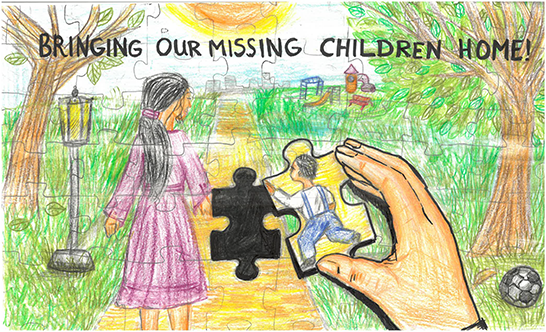The South Carolina Law Enforcement Division Fusion Center (SLED Fusion Center) utilizes the expertise and resources of local, state, federal and private sector security and intelligence professionals to provide intelligence-specific and analytically-driven products to all segments of law enforcement personnel, first responders, citizens, businesses, and critical infrastructure in South Carolina with the goal of maximizing the ability to detect, prevent, apprehend and respond to criminal and terrorist activity.

Creating the South Carolina AMBER Alert system is an effort to enhance law enforcement's ability to respond to child abductions, to quickly enlist assistance from communities, and to hopefully result in the quick and safe recovery of abducted children. The Alert mechanism is a cooperative effort between South Carolina law enforcement personnel and South Carolina broadcasters, and allows for the quick dissemination of an urgent bulletin in child abduction cases. Radio and television stations, under the South Carolina AMBER Alert system, will immediately interrupt their regular programming to broadcast information about a child's abduction. The quick dissemination of this information is critical in the effort to save the lives of abducted children.
The Blue Alert Program, established within the South Carolina Law Enforcement Division (SLED), has created a mechanism to rapidly communicate extremely important information to the general public and law enforcement to aid in the identifying, locating and capturing of the offender(s). Through voluntary partnerships with the South Carolina broadcasters, South Carolina Department of Transportation, and other organizations, the Blue Alert Program may increase the chances of rapidly capturing the offender(s) or locating the abducted officer which can result in a higher level of public safety.
In a Blue Alert event, if the offender(s) is seen or if anyone has knowledge of the identity of the offender(s), the public is warned to take caution and to immediately call 911 to provide information to the investigating law-enforcement agency.
The purpose of the Endangered Person Notification System is to provide a statewide system for the rapid dissemination of information regarding a missing person who is believed to be suffering from dementia or some other cognitive impairment.
If the Missing Persons Information Center (MPIC) at the South Carolina Law Enforcement Division (SLED) receives a report from a local law enforcement agency that involves a missing person who is believed to be suffering from dementia or some other cognitive impairment, for the protection of the person from potential abuse or other physical harm, neglect, or exploitation, the center shall issue a notification providing for the appropriate dissemination of information regarding the person. The request has to be from a law enforcement agency.
The Missing Person Information Center (MPIC) was signed into law (Section 23-3-260) to serve as a central repository for information regarding missing persons and missing and exploited children, with special emphasis on missing children. It is located in Columbia as a part of the State Law Enforcement Division. The MPIC utilizes the Federal Bureau of Investigation/National Crime Information Center’s missing person computerized file through the use of the State Law Enforcement Division’s law enforcement communications network.
SECTION 23‑3‑260. Responsibilities of Center.
The MPIC shall:
(a) Assist local law enforcement agencies with entering data about missing persons or missing children into the national missing persons file, ensure that proper entry criteria have been met as set forth by the FBI/NCIC, and confirm entry of the data about the missing persons or missing children.
(b) Utilize both the intrastate communication network and the FBI/NCIC system in locating missing persons or missing children.
(c) Collect, process, maintain, and disseminate information on missing and exploited children or missing persons.
(d) Provide for a centralized distribution center for emergency flyers on missing persons or missing children.
(e) Formulate and distribute, both intrastate and interstate, a monthly bulletin of missing persons and missing children from South Carolina to law enforcement agencies.
(f) Develop, maintain, and disseminate a directory of resources available for assistance to local, state, and federal agencies and entities, public and private organizations, and others in locating a missing person or missing child.
(g) Provide news media, including, but not limited to, television and radio stations and newspapers, with pertinent information on missing persons and missing children on a regularly scheduled basis.
(h) Develop and disseminate recommended procedures and forms for the collection of identifying information, including but not limited to blood typing, fingerprinting, and dental charting, which are compatible with criteria established by the FBI/NCIC.
(i) Maintain all available information on any missing person or missing child including, but not limited to, the missing person report, fingerprints, blood types, dental information, and photographs. The identifying information maintained at the MPIC must be kept confidential, except as may be otherwise provided in this article.
(j) Conduct statewide training sessions and seminars relative to missing and exploited children and missing persons, including, but not limited to, methods to enhance the locating of missing children and missing persons and training regarding the operation of the MPIC.
(k) In the case of locating an individual who had previously been reported as being a missing person or missing child, provide referrals for counseling or other assistance or aid to the individual or the individual’s family, if the individual or his family desires counseling or other assistance or aid.
(l) Provide a program of support and technical assistance for community‑based efforts, especially in the case of children, to prevent disappearances and to ensure self‑protection.



Contact Information - 1.800.THE LOST, 1.800.843.5678
Legal Resources – https://www.missingkids.org/gethelpnow/support/legalresources
Family Resources (Team HOPE) – https://www.missingkids.org/gethelpnow/support/teamhope



Official documentation of observed behavior reasonably indicative of pre-operational planning associated with terrorism or other criminal activity.